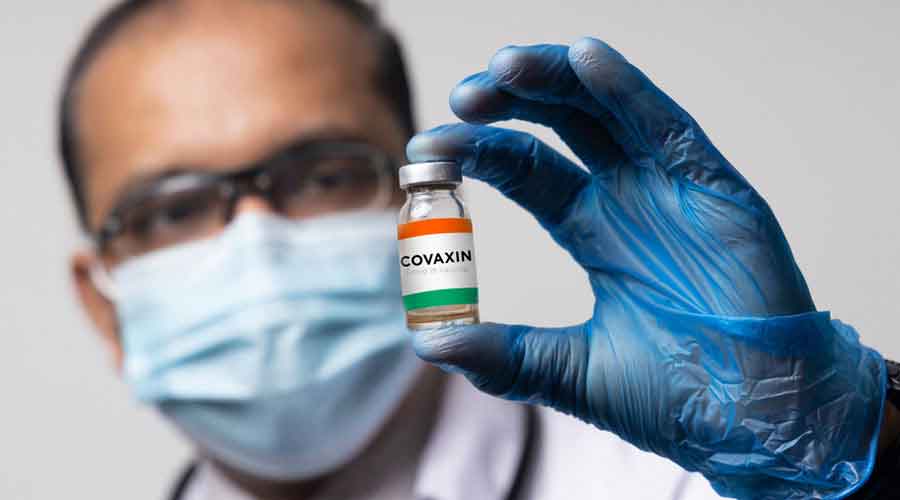Bharat Biotech, the manufacturer of India’s homegrown Covid-19 vaccine, says all is well, but the count of Covaxin doses administered is lower than what the Union health ministry had expected would be available eight months into the vaccination campaign.
The campaign that started on January 16 had up to September 6 administered around 84 million doses of Covaxin, compared with 616 million doses of Covishield, the AstraZeneca vaccine produced by the Serum Institute of India, and 8,00,000 doses of the Russian-made Sputnik V.
The health ministry had told the Supreme Court in an affidavit in early May that Bharat Biotech has increased production of Covaxin from 9 million doses per month to 20 million doses per month and a further increase to 55 million doses per month was expected by July.
In early January before the start of India’s vaccination campaign, a Bharat Biotech official had said the company had already stockpiled 20 million doses.
If the company’s Covaxin production capacity was 9 million doses from January through April and 20 million doses from May through August, it should have released 116 million doses by August-end. With the doses stockpiled by January, the count of doses by August-end should have been 136 million.
Health ministry officials and Bharat Biotech executives have independently asserted that the vaccine production and release process involves a lag of some weeks during which samples from each batch get tested in central drug testing labs.
“We are on track, there is no problem,” a Bharat Biotech spokesperson said on Tuesday, responding to a query from The Telegraph asking about the difference between the 84 million doses administered and the 136 million doses expected as indicated in the affidavit and the company’s January statement.
The company did not respond to a query about the current production per month.
Two Covaxin doses administered 28 days apart are required for full immunisation. A senior health official had earlier this year indicated that supply constraint was the only reason why the count of Covaxin doses administered is 10 to 13 per cent of the Covishield doses administered.
Health experts tracking Covid-19 vaccination initiatives in different countries and vaccine industry executives have said the current limited supplies in India are primarily the result of lack of advance investments by the Centre in vaccine production last year.
Covaxin relies on a traditional platform that uses inactivated (killed) virus to produce vaccines and requires sophisticated so-called BSL3 (Bio-Safety Level 3) facilities earmarked for lethal microbes that can cause potentially life-threatening diseases through inhalation route.
“The production of the inactivated vaccine is challenging and would require a large BSL3 facility as part of infrastructure that would need to grow the virus in large amounts,” a senior executive in the vaccine industry not associated with Bharat Biotech told this newspaper.
Bharat Biotech had said earlier this year that the “sheer complexity” of Covaxin’s production process should be evident from the fact that it requires about 10,000sqm area to manufacture around 200 million doses of the vaccine annually. The same amount of live virus vaccines can be made in 1,500sqm. “Due to the highly contagious nature of the live virus, the stringent BSL3 containment facilities are required for Covaxin manufacture,” the company had said.











